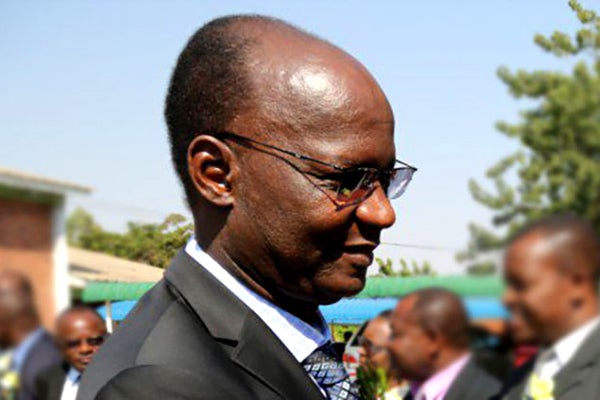By Thabani Zwelibanzi
Exiled former information minister, Jonathan Moyo has approached the High Court to stop the Ministry of Lands, Agriculture, Climate and Rural Resettlement from repossessing his Mazowe Farm, arguing that the state sold the land to him in 2002.
In his affidavit, Moyo, through his lawyers, Atherstone and Cook, argues that the withdrawal of an offer letter of the Mazowe farm was politically motivated and constituted an abuse of power.
He also argued that the withdrawal of the offer letter was based on falsehoods that the farm was being underutilised, further alleging that the state was seeking to sabotage his investments on the property for cheap political ends.
Moyo said on December 18, he received a letter informing him that the government was withdrawing an offer letter for the Mazowe farm and that he and his family should vacate the property.
The former minister decried that the withdrawal of the letter and the impending eviction were coming right in the middle of the farming season and at a time when he had invested $120 000.
Initially, the Lands ministry had said it wanted to downsize the farm and Moyo should make representations on why authorities should not go ahead with that plan.
However, in December the state changed tack and said they were repossessing the farm, without taking into account Moyo’s submissions.
In the court papers, Moyo, who together with his wife Beatrice are the applicants, says he was allocated the farm in November 2001 after it was acquired from a white farmer, Tom Bailey and he had the option to purchase it.
Five months later, Moyo says the government allowed him to purchase the farm for ZW$6 million, which at the time was equivalent to US$105 000.
He further argued that, at the time, the farm was dilapidated, with no power and was used for grazing.
The former minister said he renovated the farm and a recent evaluation put the value of the property at $723 000.
Since 2002, Moyo says he has been trying to get the property registered in his family’s name, but political events have stalled the process.
“In 2004, respondent indicated that progress had been made in facilitating the transfer of the property,” he said in court papers.
“There was, however, a political fallout in Zanu PF around what has been called the Tsholotsho declaration which led to my expulsion from the party.
“In the aftermath of the fallout in 2004, there were attempts to repossess the farm. The possession did not materialise.”
Moyo said between 2005 and 2013, he was an independent legislator and during that time, efforts to transfer the property to his name stalled.
He was later to re-join Zanu PF and the process somewhat restarted, with the Lands ministry writing to him in 2015 to seek clarity on the property’s purchase.
The former minister said, to speed up the process, he approached the late former president, Robert Mugabe, who gave the thumbs up to the transfer of the property, but before the process could be completed, he was ousted in a coup in November 2017.
Moyo said there was bad blood between himself and Lands minister Perrance Shiri and this could be motivation enough to grab his farm.
In addition to that, he said in the aftermath of the coup, the government viewed him as one of its chief enemies and this could be the reason why his farm is being targeted once again.
He added that the publication of his book, “Excelgate: How Zimbabwe’s 2018 presidential election was stolen”, which chronicles how Zanu PF purportedly rigged the elections could have triggered a fresh onslaught on his property.
Moyo argued that the claims that the farm was underutilised were false, as he was always a productive farmer.
In May 2019, it was reported that a team comprising the army, the police, and the Central Intelligence Organisation had visited the farm where they harassed and intimidated Moyo’s family and staff, a visit which precipitated efforts to repossess the farm.
The Lands ministry is yet to respond.

